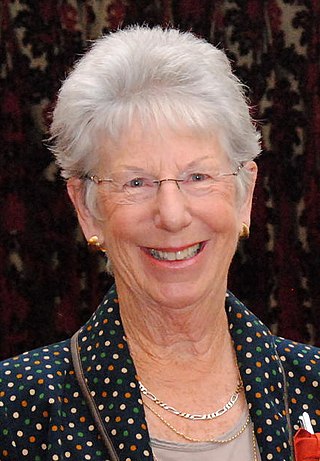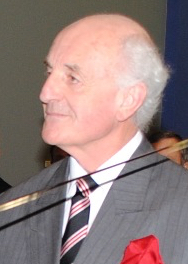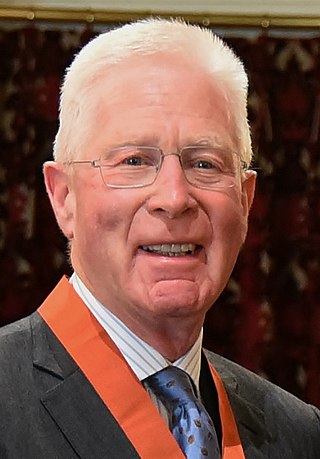Related Research Articles

The Pitcairn Islands are a British Overseas Territory in the South Pacific Ocean,with a population of about 50. The politics of the islands takes place in a framework of a parliamentary representative democratic dependency,whereby the Mayor is the head of government. The territory's constitution is the Local Government Ordinance of 1964. In terms of population,the Pitcairn Islands is the smallest democracy in the world.

The Supreme Court of New Zealand is the highest court and the court of last resort of New Zealand. It formally came into being on 1 January 2004 and sat for the first time on 1 July 2004. It replaced the right of appeal to the Judicial Committee of the Privy Council,based in London. It was created with the passing of the Supreme Court Act 2003,on 15 October 2003. At the time,the creation of the Supreme Court and the abolition of appeals to the Privy Council were controversial constitutional changes in New Zealand. The Supreme Court Act 2003 was repealed on 1 March 2017 and superseded by the Senior Courts Act 2016.

The Court of Appeal of New Zealand is the principal intermediate appellate court of New Zealand. It is also the final appellate court for a number of matters. In practice,most appeals are resolved at this intermediate appellate level,rather than in the Supreme Court. The Court of Appeal has existed as a separate court since 1862 but,until 1957,it was composed of judges of the High Court sitting periodically in panels. In 1957 the Court of Appeal was reconstituted as a permanent court separate from the High Court. It is located in Wellington.

Sir Kenneth James Keith is a New Zealand judge. He was elected to the International Court of Justice in November 2005,serving a nine-year term during the years 2006 through 2015.

The New Zealand Law Society is the parent body for barristers and solicitors in New Zealand. It was established in 1869,and regulates all lawyers practising in New Zealand. Membership of the society is voluntary,although any person wishing to practice law in New Zealand must obtain a practising certificate from the society. The society has 13 branch offices throughout the country. Each branch has a president and a council,which represent their members’interests on a regional and national level.

The High Court of New Zealand is the superior court of New Zealand. It has general jurisdiction and responsibility,under the Senior Courts Act 2016,as well as the High Court Rules 2016,for the administration of justice throughout New Zealand. There are 18 High Court locations throughout New Zealand,plus one stand-alone registry.
Sir Johann Thomas Eichelbaum was a New Zealand jurist who served as the 11th Chief Justice of New Zealand.

Dame Judith Marjorie Potter is a former High Court judge in New Zealand.

Sir John Hugh Williams,generally known as Hugh Williams,is a former president of the New Zealand Electoral Commission and a retired judge of the High Court of New Zealand. From 2016 to 2022,he was Chief Justice of the Cook Islands.

Sir Terence Arnold is a judge of the Supreme Court of New Zealand. He was the Solicitor-General of New Zealand from 2000,before being made a judge of the Court of Appeal of New Zealand in 2006. He was elevated to the Supreme Court on 11 June 2013.
Sir Peter Blanchard is a former judge of the Supreme Court of New Zealand.

Sir Robert Stanley Chambers was a judge of the Supreme Court of New Zealand.
Sir Andrew Patrick Charles Tipping is a New Zealand jurist who served as a Justice of the Supreme Court of New Zealand from 2004 until his retirement in 2012. He is New Zealand's longest-serving judge,serving on the bench for 25 years. Tipping was also a member of the Privy Council of the United Kingdom. His tenure as a jurist has been widely acclaimed and his contributions to the shaping of New Zealand law are considered to be substantial and permanent.
Prior to the 20th Century,there were few women in law in the United Kingdom. Prior to the Sex Disqualification (Removal) Act 1919,women were not permitted to practice law in the United Kingdom. By 1931 there were around 100 female solicitors. The first female-only law partnership was founded in 1933. In 2010,a report by The Lawyer found that 22 percent of partners at the UK's top 100 firms were women;a follow-up report in 2015 found that figure had not changed. Since 2014,a number of large corporate firms of solicitors have set gender diversity targets to increase the percentage of women within their partnerships. By 2019,51% of British solicitors were women.

Craig Coxhead is a New Zealand judge who is currently serving as Chief Justice of the High Court of Niue.

Sir Richard Ian Barker was a New Zealand jurist. His legal career spanned over six decades. He was a lawyer for 20 years,followed by 20 years as a judge at the High Court,before he worked for another two decades as a mediator and arbitrator. Barker was involved in the law reform in the Cook Islands.

The High Court of the Cook Islands is the court of first instance in the Cook Islands. It has general jurisdiction and responsibility under the Constitution of the Cook Islands for the administration of justice in the Cook Islands. The Court is established by part IV of the Constitution of the Cook Islands.

The Court of Appeal of the Cook Islands is the superior court of record for the Cook Islands. It hears appeals from the High Court of the Cook Islands and was established by Article 56 of the Constitution of the Cook Islands.

Patrick John Keane is a retired New Zealand judge. In December 2022,he was appointed Chief Justice of the Cook Islands,replacing Hugh Williams.
References
- 1 2 3 4 "Christine Grice – Next President Of The NZ Law Soc". Scoop. 4 October 1999. Retrieved 30 November 2017.
- ↑ "New Chief Justice for Cook Islands". New Zealand Law Society. 1 December 2016. Retrieved 30 November 2017.
- 1 2 "Justice Grice back". Cook Islands News. 28 October 2012. Archived from the original on 4 October 2017. Retrieved 30 November 2017.
- ↑ "New Zealand Law Society Presidents". New Zealand Law Society. Retrieved 30 November 2017.
- ↑ "Justice Judith Potter appointed to High Court of Cook Islands". New Zealand Law Society. Retrieved 30 November 2017.
- ↑ Schroder, Sophie (8 October 2014). "Exclusive interview: Meet New Zealand's new Minister of Justice". NZ Lawyer. Retrieved 30 November 2017.
- ↑ "New Year honours list 2004". Department of the Prime Minister and Cabinet. 31 December 2003. Retrieved 22 December 2017.
- ↑ "Appointment of Judge to the High Court". The Beehive. 20 December 2017.